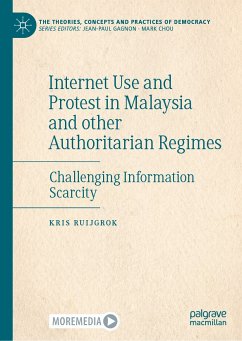This book investigates the impact of internet use on anti-government protesting under authoritarian rule. By breaking up the causal chain into various steps, it provides a thorough and nuanced understanding of internet's role in different stages of the mobilization process. It argues that the impact of internet use on anti-governmental protesting differs per step in the 'mobilization chain', and also that the effect depends on both the on- and offline repression of the regime, as well as on the type of internet that is available. While staying far away from any technologically deterministic claims about the internet, the book demonstrates that the internet especially plays an important role in the early stages of the mobilization process: By exposing citizens to alternative political information online, internet users are more likely to become sympathetic towards anti-governmental protest movements.
Kris Ruijgrok is Lecturer at the PPLE Multi-Disciplinary Institute (Politics, Psychology, Law and Economics), University of Amsterdam, The Netherlands.
Dieser Download kann aus rechtlichen Gründen nur mit Rechnungsadresse in A, B, BG, CY, CZ, D, DK, EW, E, FIN, F, GR, HR, H, IRL, I, LT, L, LR, M, NL, PL, P, R, S, SLO, SK ausgeliefert werden.









